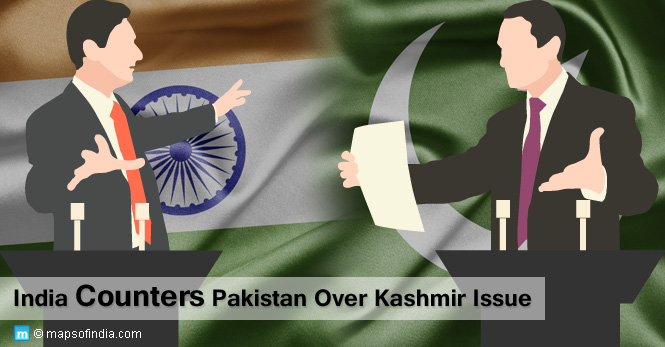India is keen to find a solution to the Kashmir issue and come to amicable terms with its western neighbour, but only through mutual negotiations and agreements and not through UN or US interventions.
India Exercises ‘Right of Reply’ at the United Nations India counters Pakistan over Kashmir issue

